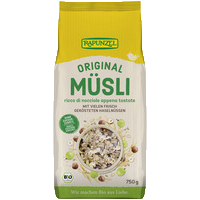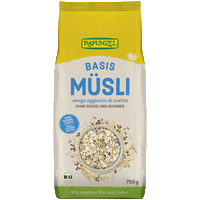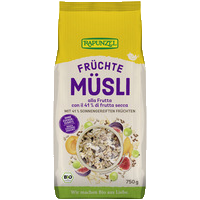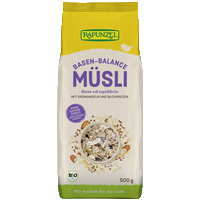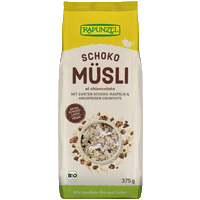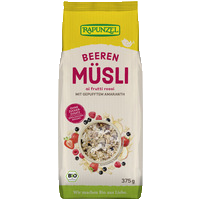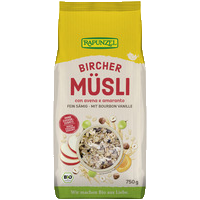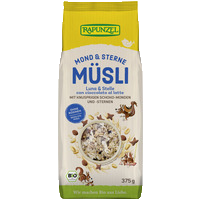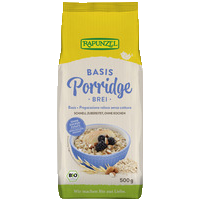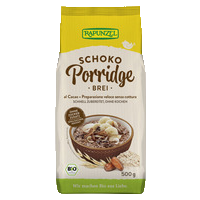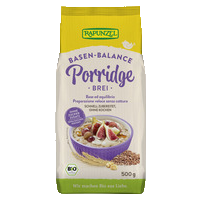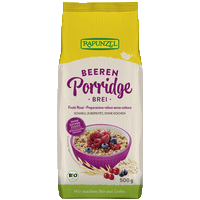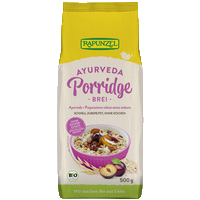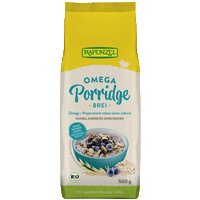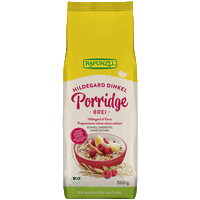Rapunzel Products Muesli and Porridge
Concentrated energy and verve for the day
Product Knowledge: Muesli & Porridge
Concentrated energy and verve for the day
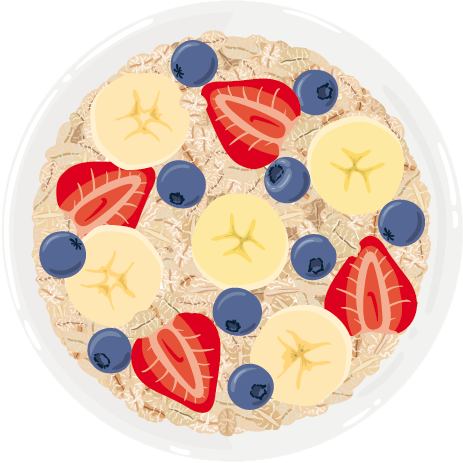
And that's what makes a great breakfast: Complex carbohydrates, because they keep you saturated for a long time – these are mainly found in whole grains. Nuts and seeds provide high-quality vegetable fats and minerals, while dried fruits bring vitamins and sweetness into play. All these building blocks are contained in our mueslis and porridges!
What makes Rapunzel mueslis and porridges so special
- 100 % selected organic raw materials
- 100 % locally-sourced wholemeal flakes from Germany
- produced at Rapunzel in the Allgäu region, with great care
- without added sugar (exception: Moon & Stars and Chocolate Muesli)
- complex carbohydrates, with a high nutrient density, that keep you full for a long time and ensure a stable blood sugar level
- fibre, which promotes satiety and is good for digestion
- vegetable protein, as an essential building block for cells, muscles and tissue
- minerals, trace elements and vitamins – essential nutrients for important bodily functions
- crunchy hazelnuts and sun-kissed dried fruit from our own cultivation projects
- Porridge: quick to prepare – simply pour hot milk, plant milk or hot water over it, leave to soak briefly and enjoy warm!
100 per cent local grain from organic farmers in Germany

Good things are close at hand. The grain for all Rapunzel mueslis and porridges is sourced locally from organic farming. It is grown organically and in harmony with nature by grain growers from Germany (e.g., on the Swabian Alb). The farmers create valuable habitats for numerous species, thanks to multi-year crop rotations on small fields with flower strips, fallow land and hedges. This promotes biodiversity and soil health in the long term.
Oats are both robust and sensitive. In spring, the crops absolutely need water to thrive. In summer, it can also tolerate drought. This is because oats concentrate on the grain: If the summer is dry, the oats do not stand so tall and put all their energy into the grain. The yield is still somewhat lower, but there are no major losses. The oats are harvested before they are too ripe, as they are then more susceptible to fungal diseases.
After harvesting, the oats are stored, taken to the mill and processed into flour or flakes. To produce oat flakes, the whole grain is gently steamed and rolled into flakes. For the small oat and spelt flakes, the grains are additionally crushed before steaming. From the mill, the oats are then sent to Rapunzel in Legau, where the oat flakes are mixed with other organic ingredients to make fine muesli and packaged.
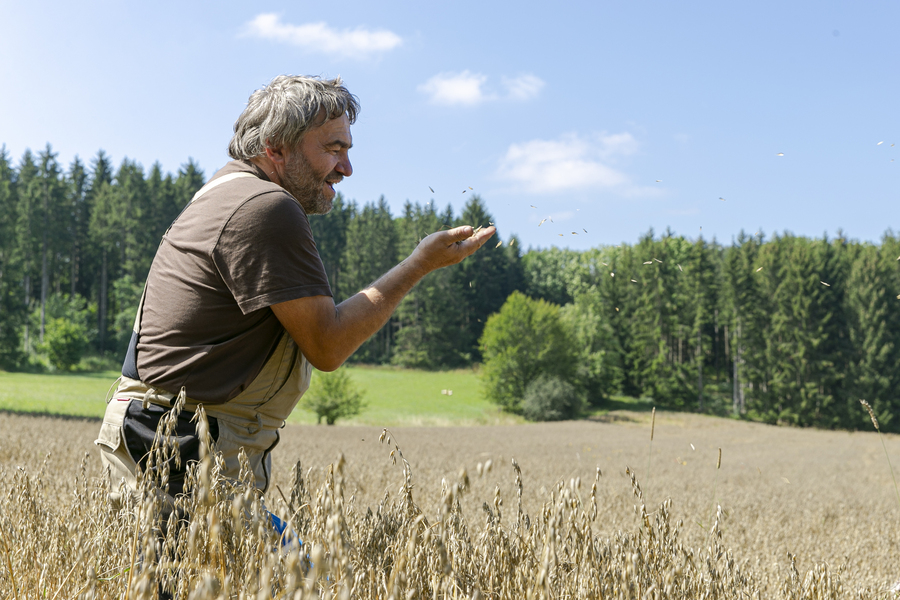
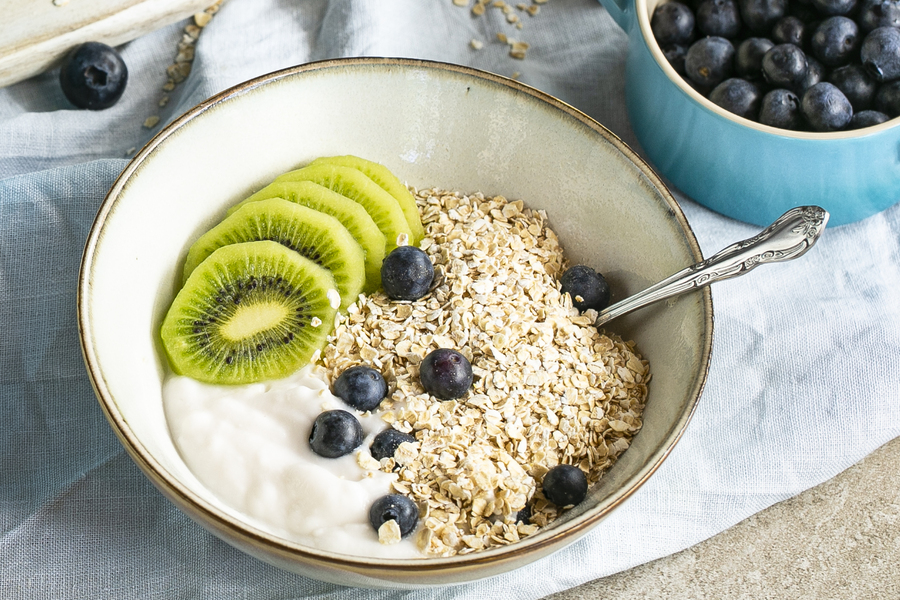
This is how it all began: What our muesli has to do with a bathtub
Once upon a time, back in 1974: Rapunzel founder, Joseph Wilhelm, and his friends were working on the first muesli recipe in their mutually-shared kitchen. It had to be healthy and, needless to say, it had to taste great. So the first Rapunzel muesli – the Original muesli – was created from wholemeal flakes, nuts, buckwheat, seeds, and sultanas. Because it went down so well, they were mixing more and more and, without further ado, decided to use a bathtub for this.
A lot has happened since then: The dimensions have changed, and the bathtub is now a museum piece - but the mueslis and porridges are still mixed at the Rapunzel headquarters in the Allgäu region. And even today, only local cereal flakes of the best organic quality are used. Incidentally, muesli was one of the reasons for the company's own cultivation project in Turkey: As early as 1976, Joseph Wilhelm set off for Turkey in search of unsulphurised dried fruit and organic nuts.

Complex carbohydrates and valuable protein

The value of complex carbohydrates
The best energy sources are provided by high-quality complex carbohydrates from wholemeal cereals. This is because foods with complex carbohydrates have a very high nutrient density, thus keeping you full for a long time and ensuring a stable blood sugar level. The valuable fibre also delays the absorption of glucose (sugar) into the blood, thereby also slowing down the rise in blood sugar levels.
Oat flakes, an important component of porridges and muesli, provide us with beta-glucans, which have been shown to have a positive effect on blood cholesterol levels and blood sugar levels. Their satiating effect helps to maintain weight, in addition to having a probiotic effect and promoting healthy intestinal flora. The EFSA (European Food Safety Authority) recommends 3 g beta-glucan per day.
Valuable protein – building block of life
Valuable vegetable proteins from wholegrain cereals and oilseeds perfectly complement those in milk or soya drinks. Unlike carbohydrates and fats, proteins are not primarily used as a source of energy, but mainly as a building material in the human organism. For example, they maintain the structure of cells and ensure that hair and nails grow or that skin and muscles remain elastic. Special transport proteins also transport important substances to the tissue. The red blood pigment, haemoglobin, for example, transports oxygen from the lungs to the various organs.
And that's not all: Proteins are needed for body movement and enable muscles to function. As antibodies, proteins ward off pathogens, and as hormones, they influence the metabolism and regulate blood sugar levels. If the body's sugar reserves are exhausted, they also provide the body with energy.
Valuable vegetable proteins from wholegrain cereals and oilseeds perfectly complement those in milk or soya drinks. Unlike carbohydrates and fats, proteins are not primarily used as a source of energy, but mainly as a building material in the human organism. For example, they maintain the structure of cells and ensure that hair and nails grow or that skin and muscles remain elastic. Special transport proteins also transport important substances to the tissue. The red blood pigment, haemoglobin, for example, transports oxygen from the lungs to the various organs.
And that's not all: Proteins are needed for body movement and enable muscles to function. As antibodies, proteins ward off pathogens, and as hormones, they influence the metabolism and regulate blood sugar levels. If the body's sugar reserves are exhausted, they also provide the body with energy.
The glycaemic index and blood sugar levels
The glycaemic index (GI) is a measure of the extent to which the carbohydrates from the ingested food are absorbed into the blood and cause the blood sugar to rise above the normal value. In addition to the carbohydrate composition of the food, factors such as the processing of the food, its breakdown and digestion in the intestine and the other nutrients it contains also determine the glycaemic index of a food. The lower the degree of processing and the higher the share of complex carbohydrates and fibre, the lower the glycaemic index and the flatter the blood sugar curve after eating. Fats and proteins also reduce the glycaemic index.
Foods with a low glycaemic index (GI) prevent the development of high blood sugar concentrations (blood sugar peaks).
Read more about our porridge especially for athletes here.
The glycaemic index (GI) is a measure of the extent to which the carbohydrates from the ingested food are absorbed into the blood and cause the blood sugar to rise above the normal value. In addition to the carbohydrate composition of the food, factors such as the processing of the food, its breakdown and digestion in the intestine and the other nutrients it contains also determine the glycaemic index of a food. The lower the degree of processing and the higher the share of complex carbohydrates and fibre, the lower the glycaemic index and the flatter the blood sugar curve after eating. Fats and proteins also reduce the glycaemic index.
Foods with a low glycaemic index (GI) prevent the development of high blood sugar concentrations (blood sugar peaks).
Read more about our porridge especially for athletes here.
You might also be interested in:
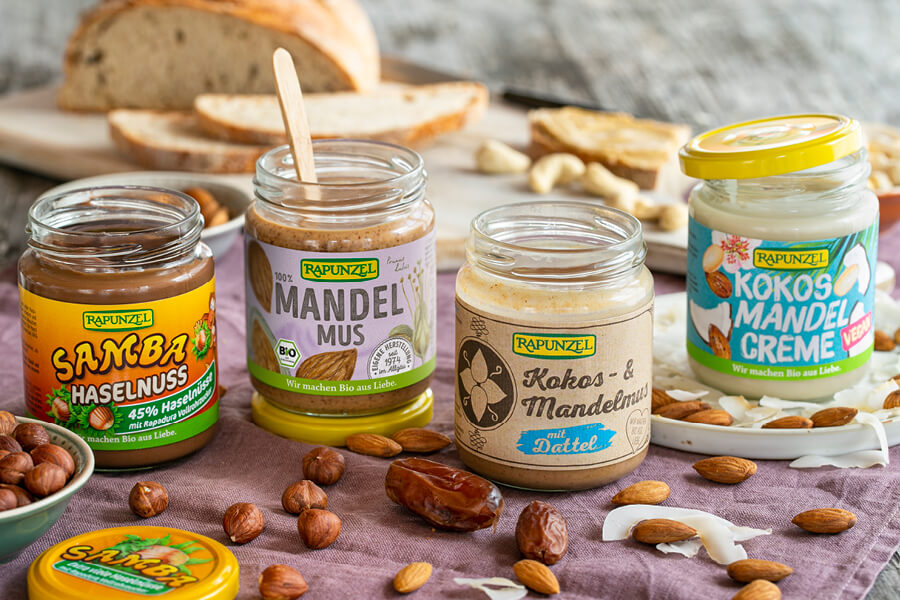
Organic manufacturer
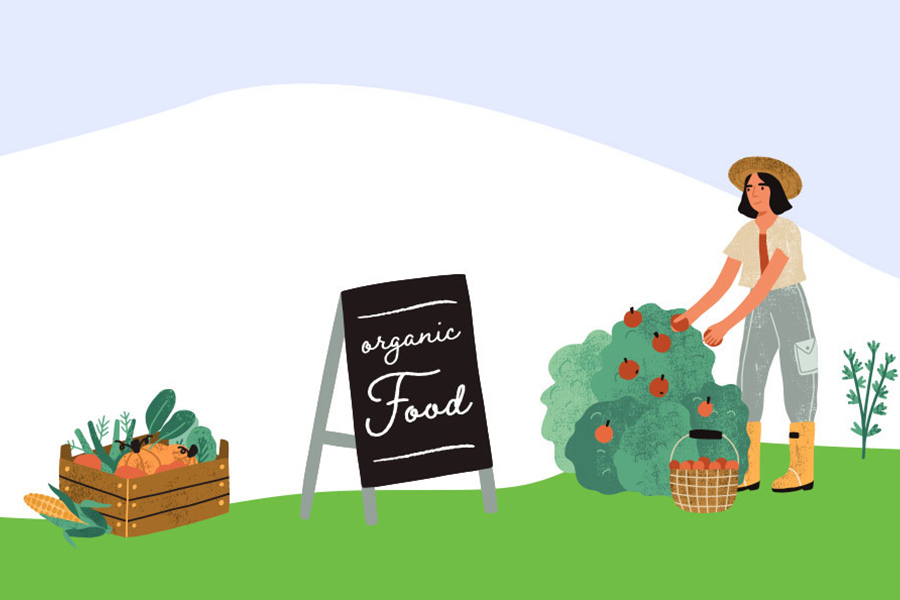
Real organic
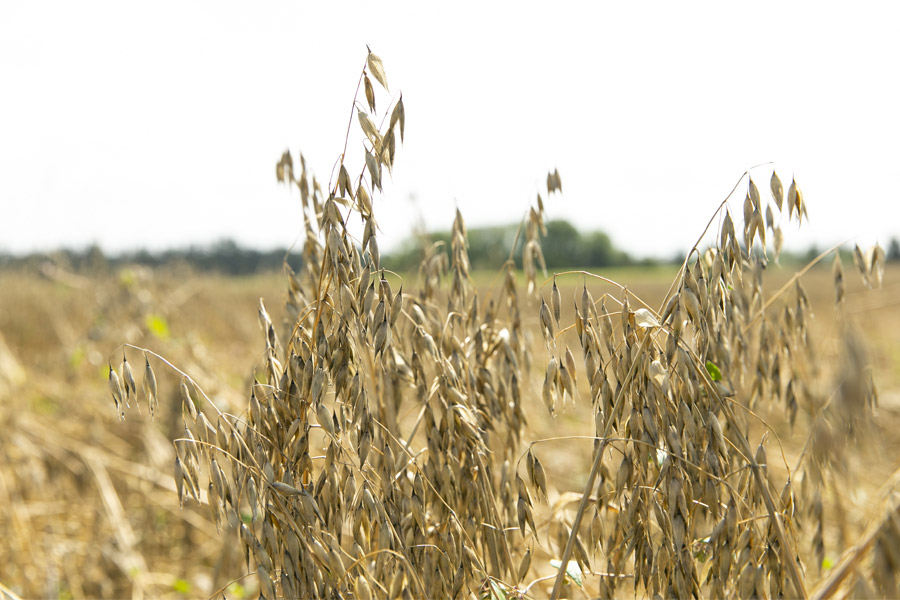
Supplier portrait: Oats – from the Swabian Alb

Bio cent

